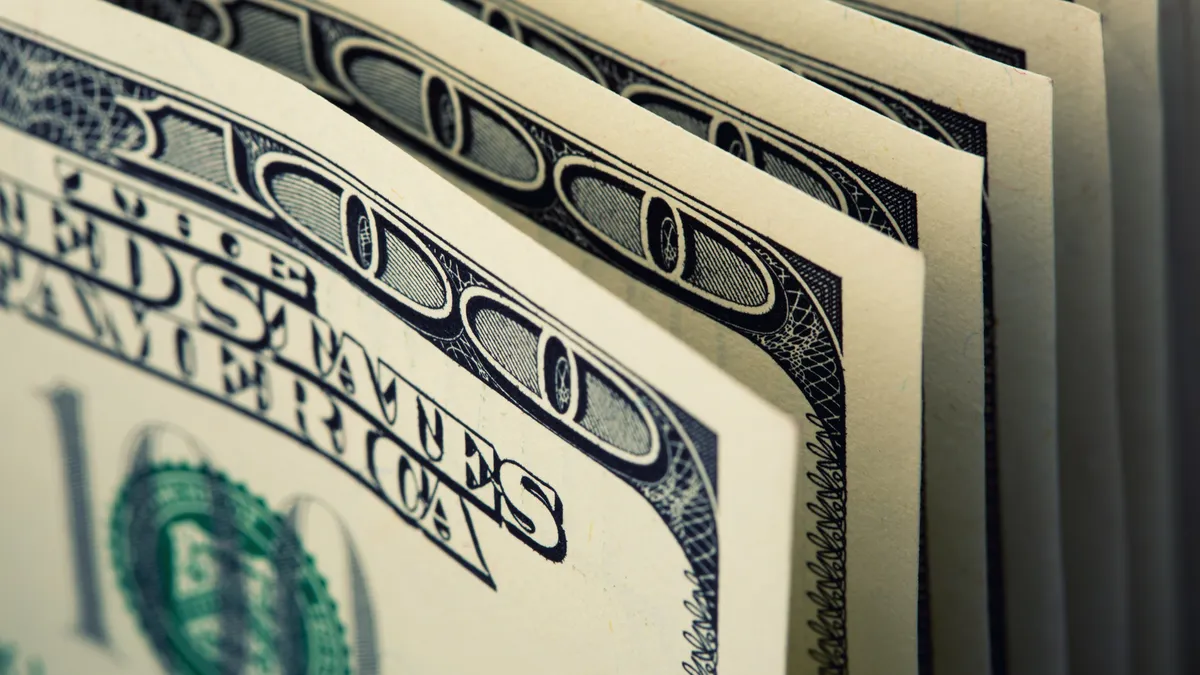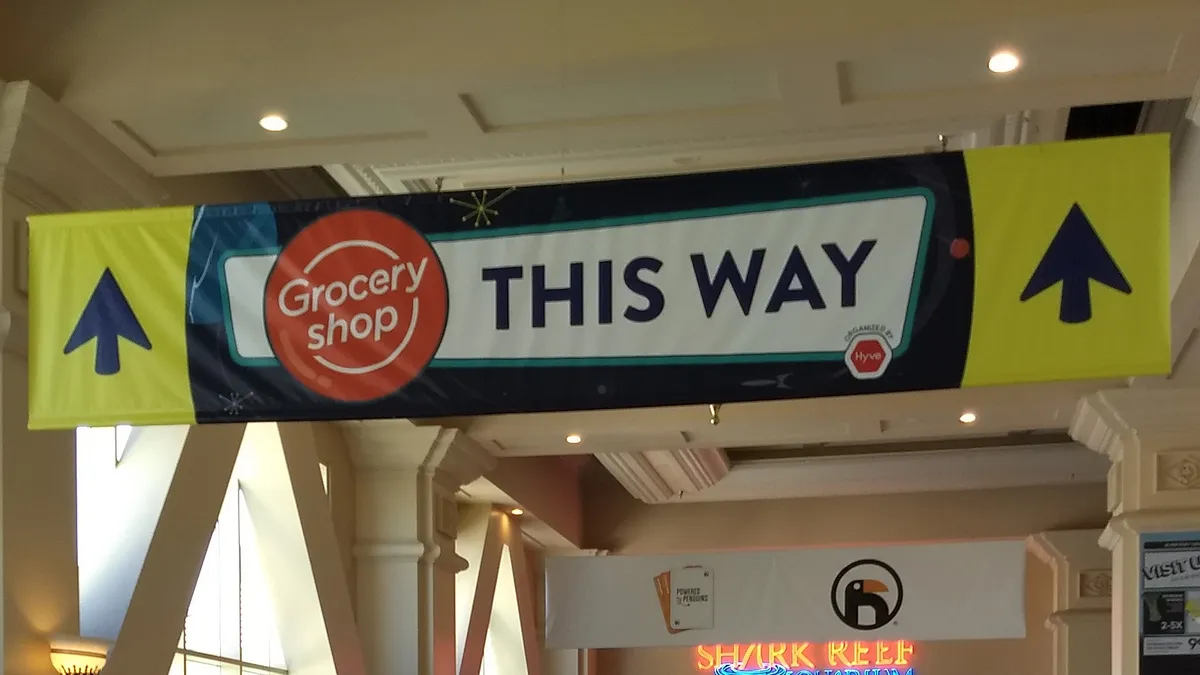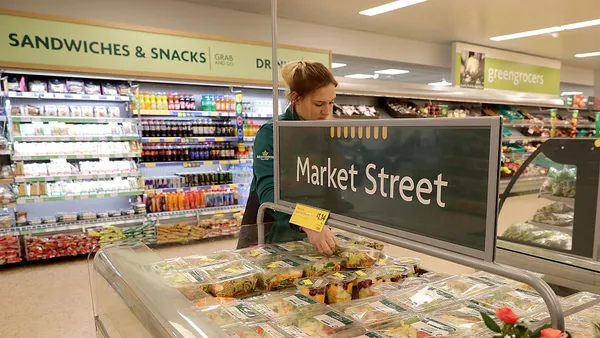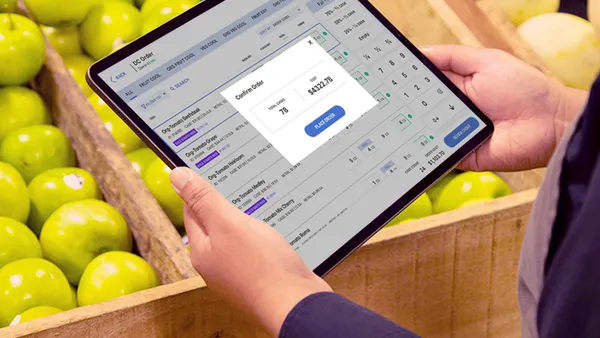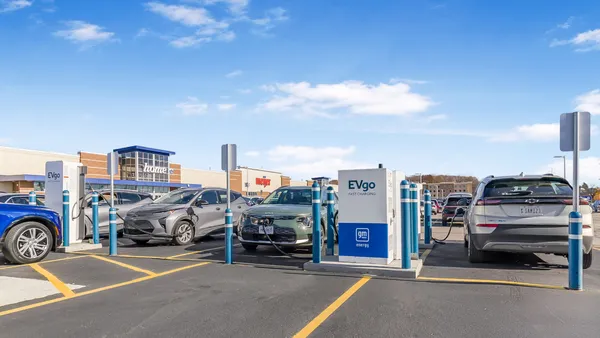Dive Brief:
- Three startup businesses in the food and retail space announced venture capital investments totaling $350 million this week. Brandless, which ships curated, proprietary products directly to consumers, states that it is “democratizing access to high-quality products at fair prices by cutting out the middleman and eliminating unnecessary markups.” The company received $240 million in a round led by SoftBank's Vision Fund.
- Bulletproof 360, which develops science-based food and beverage product lines including Bulletproof Coffee, secured $40 million. The round was led by CAVU Venture Partners, which has previously invested in the keto-friendly wellness brand. Bulletproof plans to use these funds to expand its better-for-you products to “help people gain long-lasting energy, eliminate cravings and boost cognitive performance.”
- Apeel Sciences, which develops invisible plant-based edible skin aimed at extending the shelf-life of fruits and vegetables, raised $70 million in funding, according to Food Navigator. The funding round was led by Viking Global Investors, but also included Andreessen Horowitz, Upfront Ventures and S2G Ventures. The company said it will use the money to accelerate its work with avocado, citrus, berry, stone fruit and asparagus.
Dive Insight:
Tuesday’s investment windfall is in line with this year’s activity overall. According to PitchBook, there has been more venture capital invested in the U.S. through the first half of 2018 than at any six-month period in recent history.
All three of these deals have the potential to challenge some players in the food space. Brandless’ direct-to-consumer, markup-elimination model could directly compete with grocers that are investing heavily in delivery. By offering targeted, better-for-you offerings curated through “community-informed data and machine learning,” Brandless hits on a number of consumer demands, from non-GMO food to non-toxic cleaners. It also offers original content such as recipes to conjure up a deeper experience with the brand. Jeffrey Housenbold, from SoftBank Investment Advisers, said in a written statement that Brandless’ data-driven approach was a major appeal, enabling the company to “provide a personalized shopping experience and generate compelling unit economics.”
Brandless plans to use the $240 million in funding to further its investment in data science — a wise move for retailers to maintain their advantages in operations and logistics.
Apeel generated quite a buzz when word got out that its technology prolonged the life of avocados, among other perishables. The avocado equation is one worthy of a funding solution — demand is up exponentially, with the average American consuming about one pound in 1989 versus seven pounds in 2016. Until now, the shelf life of the fruit has been just days.
Apeel has generated interest from investors, including heavyweights Bill and Melinda Gates, who have pitched in hoping to remedy issues from crop destruction in Africa to food waste in general. According to ReFed, the United States wastes about 63 million tons of food each year, with 40% of that in grocery stores and restaurants. ReFed estimates that reducing fruit and vegetable waste would represent an $18.2-billion opportunity for retailers. According to Food Navigator, Apeel avocados have generated a 10% increase in sales at one grocery store because the retailer was not throwing as much product away.
According to founder James Rogers, this technology has the potential to quadruple the shelf-life of fresh produce, which could then eliminate the use of preservatives, controlled atmosphere, fungicides and “potentially even refrigerated transport altogether.” In other words, it has big implications for the produce sector and grocery category.
Bulletproof, the brand that is synonymous with the butter coffee trend, is chasing the increasing number of consumers who are seeking better-for-you, functional products. It has branched out from its buttery roots, offering mycotoxin-free coffee beans, supplements and powders from proteins and fats, and bars. The new capital will fuel the keto diet-friendly brand’s omnichannel growth plans to reach even more of them. The timing seems ripe: According to a report from Technavio, the global functional foods and beverage market is anticipated to grow at a steady rate and will post a compound annual growth rate of close to 8% from 2017 to 2021. For that same period, analysts forecast a CAGR of 6.53% for the U.S. market.
According to CB Insights, food and beverage startups have raised nearly $10 billion since 2013. These funding rounds show that investors are excited about food and beverage innovations as consumer demands for personalized, healthy, sustainable and valuable continue to grow.


